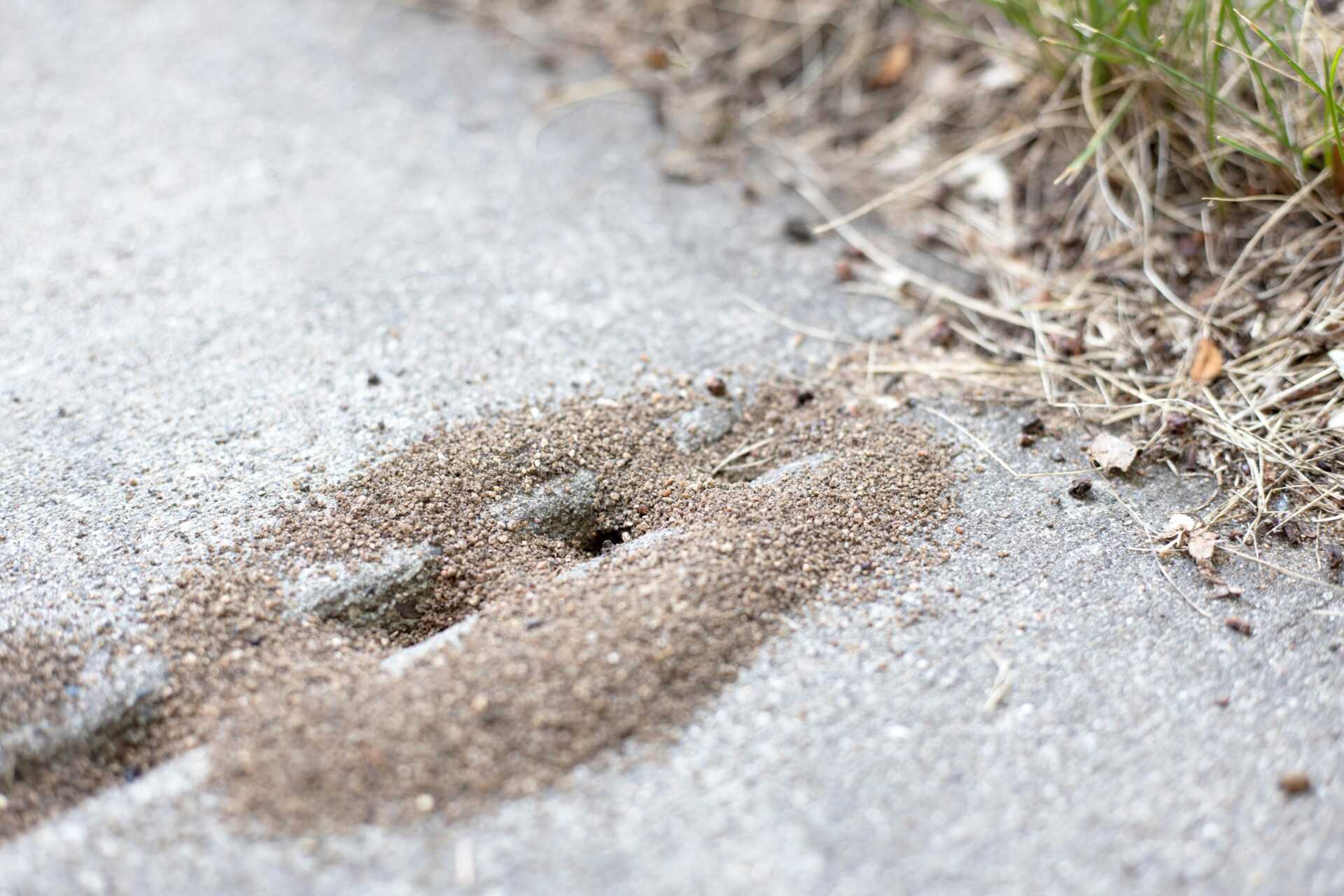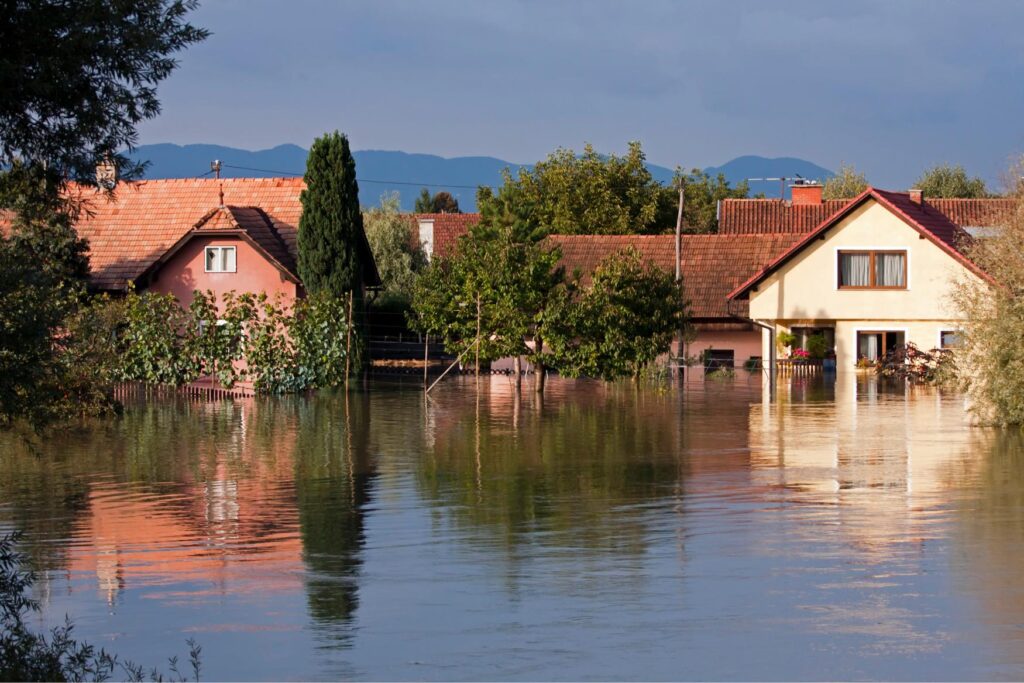Contents
Have you ever wondered which outdoor pest control services truly stands out as the most effective for homeowners? Discovering the ideal solution to keep pests at bay can be a challenging task, but with the right approach, you can guarantee a pest-free outdoor environment that complements your home. By exploring various pest control methods, you’ll gain insight into the top services available to help you safeguard your outdoor living spaces.
Natural Repellents
Natural repellents play a crucial role in outdoor pest control for homeowners. When dealing with pesky insects like mosquitoes, flies, and ants, natural repellents offer an effective and environmentally friendly solution. Essential oils such as citronella, lavender, eucalyptus, and peppermint are recognized for their insect-repelling properties. These oils work by masking scents that attract pests, making your outdoor space less attractive to insects.
Citronella oil, derived from the lemongrass plant, is a popular natural repellent due to its strong odor that confuses mosquitoes and masks the carbon dioxide we exhale. Lavender oil, on the other hand, not just repels insects but also has a calming effect on humans, making it a pleasant addition to outdoor spaces.
Eucalyptus oil is effective in repelling flies, mosquitoes, and ticks, making it a versatile option for outdoor pest control. Peppermint oil is recognized for its ability to deter ants and spiders, making it a great choice for those dealing with crawling pests.
To use natural repellents effectively, consider mixing a few drops of essential oil with water in a spray bottle and applying it to areas where pests are likely to gather, such as around doors, windows, and outdoor seating areas. Regular reapplication may be necessary, especially after rain or heavy watering. Embracing natural repellents can help you enjoy your outdoor space without the annoyance of unwanted pests.
Pest-Resistant Plants
When selecting pest-resistant plants for your outdoor space, consider factors such as scent, texture, and color that naturally deter pests.
Certain plants emit odors that repel insects, while others have fuzzy or prickly leaves that pests dislike.
Additionally, companion planting can enhance the pest-repelling properties of your garden by strategically placing plants that benefit each other in close proximity.
Plant Selection Tips
For homeowners looking to maintain a pest-free outdoor environment, selecting pest-resistant plants is an essential step in effective pest control. By choosing plants that naturally repel pests, you can create a more harmonious and balanced outdoor space. Consider incorporating the following pest-resistant plants into your garden for added protection against common invaders:
| Plant | Pest-Resistance | Best Growing Conditions |
|---|---|---|
| Lavender | Deters mosquitoes and moths | Full sun, well-drained soil |
| Marigolds | Repels aphids and whiteflies | Full sun, average soil |
| Rosemary | Keeps away flies and mosquitoes | Full sun, well-drained soil |
These plants add beauty to your garden and also act as natural defenders against unwanted pests, reducing the need for chemical interventions. By strategically placing these pest-resistant plants around your outdoor space, you can create a welcoming environment that is uninviting to pests. Embrace the benefits of pest-resistant plants and enjoy a pest-free outdoor oasis.
Natural Pest Deterrents
To fortify your outdoor pest control strategy, maximizing the use of pest-resistant plants serves as a proactive measure against common invaders. Incorporating plants like marigolds, lavender, and rosemary can act as natural deterrents for pests such as mosquitoes, aphids, and beetles.
Marigolds emit a scent that repels insects, while lavender’s fragrance is known to deter mosquitoes. Rosemary, with its aromatic leaves, can keep pests like beetles at bay. Additionally, planting mint can help ward off ants and flies due to its strong scent, which these insects dislike.
These pest-resistant plants add beauty to your outdoor space while also providing a natural barrier against unwanted visitors. By strategically placing these plants around your garden or patio, you can create a more pest-resistant environment without the need for harmful chemicals. Embrace the power of nature’s pest control agents by including these plants in your outdoor landscape for a more harmonious and pest-free living space.
Companion Planting Benefits
Maximizing the efficacy of your outdoor pest control efforts can be achieved through the strategic practice of companion planting with pest-resistant plants. Companion planting involves placing certain plants together to enhance growth, deter pests, and provide mutual benefits.
By incorporating pest-resistant plants into your garden, you create a natural barrier against common outdoor pests like aphids, beetles, and caterpillars.
Plants such as marigolds, lavender, and chrysanthemums are known for their pest-repelling properties. With their distinct scent, marigolds deter nematodes in the soil and repel pests above ground. Lavender adds a lovely fragrance to your garden and helps keep mosquitoes, flies, and moths at bay. Chrysanthemums contain pyrethrin, a natural insect repellent used in many commercial pest control products.
Integrating these pest-resistant plants strategically throughout your garden can create a harmonious ecosystem that naturally deters pests while promoting plant health and growth. Consider the benefits of companion planting with pest-resistant plants to enhance your outdoor pest control efforts and create a thriving garden environment.
Barrier Sprays
How effective are barrier sprays in controlling outdoor pests and securing a pest-free environment around your home? Barrier sprays are a highly effective method in the battle against outdoor pests. They create a protective shield around your home, acting as a barrier that repels and eliminates unwanted insects. Here are five key benefits of using barrier sprays:
- Long-lasting Protection: Barrier sprays provide extended protection, keeping pests at bay for weeks at a time.
- Targeted Application: These sprays can be applied precisely where needed, ensuring that the treatment is effective and efficient.
- Broad Pest Coverage: Barrier sprays are effective against a wide range of pests, including mosquitoes, ants, fleas, and ticks.
- Safe for Pets and Plants: Many barrier sprays are formulated to be pet-friendly and safe for your garden and plants.
- Professional Expertise: Hiring a professional pest control service for barrier sprays ensures that the treatment is applied correctly and effectively.
Trapping Solutions
Pest control strategies go beyond barrier sprays, with trapping solutions offering a targeted approach to eliminating specific outdoor pests around your property. Trapping solutions can be highly effective in managing pests like rodents, squirrels, and other small animals that may be causing trouble in your outdoor spaces. These solutions are designed to capture the pests without harming them, allowing you to release them back into the wild away from your home.
When considering trapping solutions, selecting the right type of trap for the specific pest you’re dealing with is crucial. Here is a table outlining different types of traps and the pests they are most effective against:
| Trap Type | Target Pest | Description |
|---|---|---|
| Live Cage Trap | Squirrels, Raccoons | Humane traps that capture animals unharmed |
| Snap Trap | Mice, Rats | Quick-kill traps for small rodents |
| Box Trap | Chipmunks, Rabbits | Enclosed traps suitable for various pests |
Beneficial Insects
Beneficial insects serve as your pest-eating allies in the garden, naturally controlling populations of harmful insects that can damage your plants. These beneficial bugs, like ladybugs and lacewings, act as efficient predators, reducing the need for chemical pesticides. Additionally, they play an essential role as pollinators, ensuring the successful reproduction of many plants in your outdoor space.
Pest-Eating Allies
Among the arsenal of outdoor pest control methods, harnessing the power of nature’s own pest-eating allies can prove to be a highly effective and environmentally friendly approach. These beneficial insects are nature’s own pest control squad, ready to defend your garden against unwanted invaders.
Here are five of these pest-eating allies you can attract to your outdoor space:
- Ladybugs: These charming beetles feast on aphids, mealybugs, and other soft-bodied insects.
- Praying Mantises: Known for their patience and stealth, praying mantises are efficient predators of various pests like flies and caterpillars.
- Lacewings: With delicate, transparent wings, lacewings target aphids, spider mites, and other small insects.
- Ground Beetles: These nocturnal hunters prey on slugs, snails, and cutworms that can damage plants.
- Hoverflies: Resembling bees, hoverflies feed on nectar, but their larvae devour aphids, thrips, and other pests.
Pollinators in Action
As your outdoor area thrives with a variety of beneficial insects that serve as nature’s own pest control team, another significant role emerges – that of pollinators in action. Pollinators, such as bees, butterflies, and hummingbirds, play an essential role in the ecosystem by transferring pollen from one flower to another, facilitating the process of fertilization and seed production. This important function ensures the reproduction of plants and contributes to the production of fruits, vegetables, and seeds that form the basis of our food supply.
Bees, the most efficient pollinators, exhibit specialized behaviors such as pollen collection and buzz pollination, improving the efficiency of pollination.
Butterflies, with their vibrant colors and long proboscis, are attracted to specific flowers, aiding in cross-pollination. Additionally, hummingbirds, with their long, slender beaks, play a notable role in pollinating tubular flowers that other insects may not reach.
Professional Exterminators
Professional exterminators play an important role in effectively managing and eliminating outdoor pests on your property. When it comes to pest control, relying on the expertise of professionals can make a significant difference in maintaining a pest-free outdoor environment. Here are some key aspects of professional exterminators that contribute to their effectiveness:
- Custom Treatment Plans: Professional exterminators assess your property to create personalized treatment plans crafted for your specific pest issues.
- Expert Knowledge: These professionals have in-depth knowledge of pest behavior, biology, and effective control methods.
- Safe and Effective Products: They use environmentally friendly and safe products to address pest problems while ensuring the well-being of beneficial insects.
- Continuous Monitoring: Professional exterminators provide ongoing monitoring to track the effectiveness of treatments and make adjustments as needed.
- Preventive Measures: In addition to controlling current pest infestations, they also implement preventive measures to avoid future pest problems.
Electronic Repellers
Utilizing electronic deterrents is a contemporary and innovative approach to managing outdoor pests around your home. These devices emit ultrasonic sound waves that are disruptive to pests like rodents, insects, and even raccoons, keeping them at bay without harming them. The ultrasonic waves produced by electronic deterrents are typically not audible to humans, making them an ideal solution for pest control without causing any disturbance to you or your family.
The effectiveness of electronic deterrents can vary depending on factors such as the specific pest targeted, the size of the area needing protection, and the layout of your outdoor space. For example, electronic deterrents work well for deterring rodents like mice and rats, but may be less effective against insects like ants or mosquitoes. It’s vital to strategically place these devices in areas where pests are likely to enter or congregate for best results.
When selecting electronic deterrents for your outdoor pest control needs, consider factors like coverage area, power source (battery-operated or solar-powered), and whether the device is weatherproof for outdoor use. Additionally, regularly monitor and maintain these deterrents to ensure they’re functioning correctly and effectively deter pests from your home. By incorporating electronic deterrents into your pest control strategy, you can create a more harmonious outdoor environment for you and your family to enjoy.
Regular Inspections
To effectively manage outdoor pests in your home environment, regular inspections play a crucial role in identifying potential infestations and addressing them promptly. Conducting routine checks can help you stay ahead of pest problems and maintain a pest-free outdoor space. Here are some key components to focus on during your regular inspections:
- Structural Integrity: Inspect the exterior of your home for any cracks, crevices, or openings that pests could use as entry points.
- Garden and Yard: Check your garden and yard for signs of pest activity, such as chewed leaves, burrow holes, or pest droppings.
- Standing Water: Eliminate any sources of standing water as they can attract pests like mosquitoes and rodents.
- Trash Receptacles: Ensure that trash cans are securely sealed to prevent pests from accessing food sources.
- Outdoor Furniture: Examine outdoor furniture for signs of pest infestation, such as nests, eggs, or chew marks.
Eco-Friendly Treatments
Inspecting and identifying potential infestations during your regular outdoor pest control checks sets the stage for implementing effective solutions like environmentally friendly treatments. When it comes to green treatments, homeowners seek methods that aren’t just efficient and safe for the environment and their families.
One popular sustainable option is neem oil, derived from the seeds of the neem tree. Neem oil interrupts the feeding and reproduction of various pests, such as aphids, whiteflies, and spider mites, making it a versatile solution for your outdoor pest control needs.
Another eco-conscious treatment gaining traction is diatomaceous earth, a fine powder made from fossilized algae. Diatomaceous earth works by dehydrating insects upon contact, effectively controlling pests like ants, cockroaches, and beetles without posing harm to beneficial insects or pets.
Additionally, introducing beneficial insects like ladybugs or praying mantises to your outdoor space can help naturally control pest populations in an innovative manner.
For those dealing with mosquito issues, utilizing mosquito-repelling plants such as citronella, lavender, or marigolds can provide a natural and visually appealing way to deter these pesky insects.
Recap
Congratulations, you’ve now mastered the art of outdoor pest control! With a combination of natural repellents, pest-resistant plants, barrier sprays, trapping solutions, beneficial insects, professional exterminators, electronic repellers, regular inspections, and eco-friendly treatments, your outdoor space will be a fortress against pesky pests. Embrace your newfound expertise and watch as those unwanted visitors scurry away in fear of your superior pest control tactics. Happy pest-free living!




